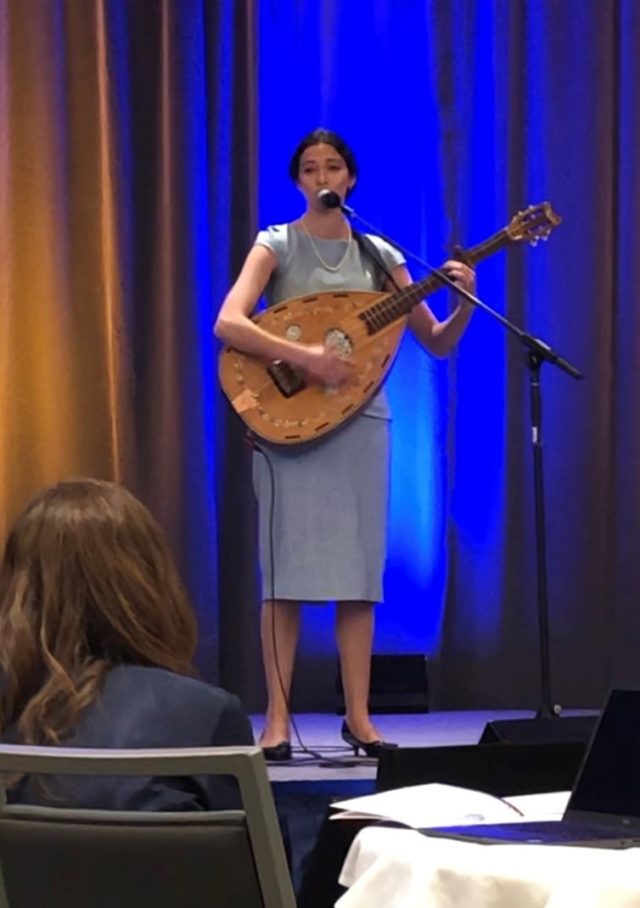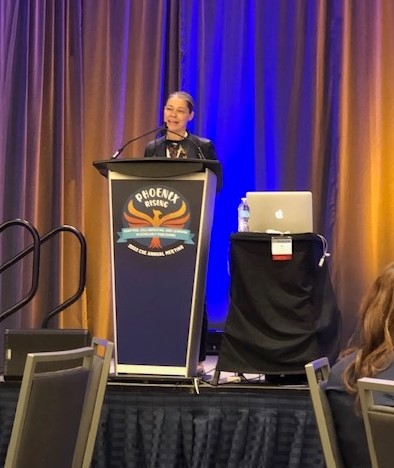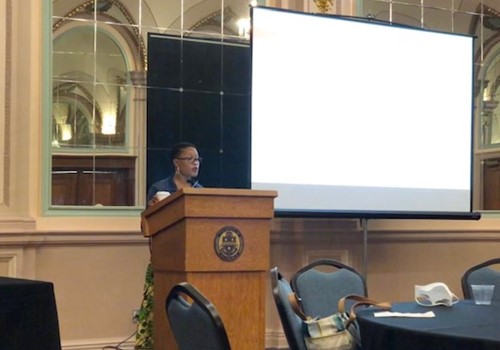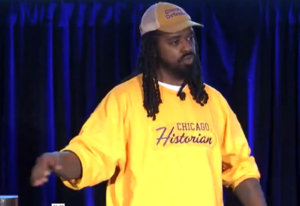J&J had a busy spring with a return to face-to-face meetings. Our trips to the Council of Science Editors Annual Meeting, the Library Publishing Forum, and the Society for Scholarly Publishers Annual Meeting were fun and productive, and seeing people in person was even more joyous than expected.
One recurring theme we’ve noticed is the prevalence of outside-the-box sessions that prove you can share important concepts using unique formats or unexpected topics.
CSE 2022 Annual Meeting
 |
 |
At the Council of Science Editors Annual Meeting, Zoe Swann, a PhD candidate at Arizona State University, shared her talent as she interspersed live music performance with her keynote slides. Swann’s songs about biochemistry and related disciplines proved that there are multiple ways to communicate science beyond the traditional methods of textbooks and journal articles.
Swann also made it clear that she and many of her early-career researcher colleagues are interested in publishing and science communication and that we in the industry would be wise to connect with them. Building deeper connections between researchers and publishers is usually a good idea, and Swann mentioned that many of these researchers might actually prefer to work in science publishing!
Another highlight of CSE’s 2022 meeting in Phoenix was the recognition of Jenn Deyton (a “J” of J&J) as the incoming president of CSE. Congrats, Jenn!
Library Publishing Forum

The Library Publishing Coalition’s Annual Forum was a new experience for J&J. Library publishers are a growing subset of our client base, and we went to meet with them in person in Pittsburgh this year.
The LPF began with a deeply impactful keynote from Dr. Christen Smith, Founder of Cite Black Women and Associate Professor of African and African Diaspora Studies and Anthropology, University of Texas at Austin. Dr. Smith related to the audience several uncomfortable truths about the way black women scholars have been diminished and erased by others in academia.
Dr. Smith’s research and observations were both an important reflection and a call to action to all of us in scholarly communications: We must be intentional about citing Black women, as they are far too often pushed to the side. Fortunately, awareness is growing: the hashtag #CiteBlackWomen is now seen regularly in scholarly circles on Twitter. Dr. Smith’s impact on research communication is palpable and hard to avoid, thanks to this growing online movement.
In addition to more publishing-focused sessions, the LPF also featured a panel on labor organizing at universities. Lauren Collister moderated an engaging discussion about labor struggles at universities and how she and her colleagues have worked to organize and collectively bargain with their administration under the auspices of the United Steelworkers labor union. In a library world that is often underfunded and underappreciated, this labor message resonated strongly.
Society for Scholarly Publishing Annual Meeting 2022

The Society for Scholarly Publishing Annual Meeting in Chicago felt like a return to form for our industry. Attendance was nearly at pre-pandemic levels, and spirits were high. The keynote from Shermann “Dilla” Thomas is one that will be remembered for years. Thomas rose to prominence on TikTok as he shared pieces of Chicago’s fascinating history to an audience of millions. His unique perspective and presentation style breathed fresh life into local history, and his passion for the stories in his city was infectious. The combination of Thomas’s modern communication style set in the context of a scholarly publishing meeting succeeded in pushing the audience to see our industry in a new light.
Thomas and the others we met this spring proved that there are many ways to communicate about scholarly pursuits. Whether it’s music, online movements, or viral videos, it is clear that the industry is just scratching the surface of what these channels are capable of.
Our jobs as publishers are not to defend the old institutional communication channels, but rather to identify new ones and find ways to support those voices that are pioneering new ways to translate scholarship for wider audiences. It’s a significant challenge, but that’s never stopped us before.
This article was contributed by Michael Casp, J&J Editorial’s Director of Business Development.
